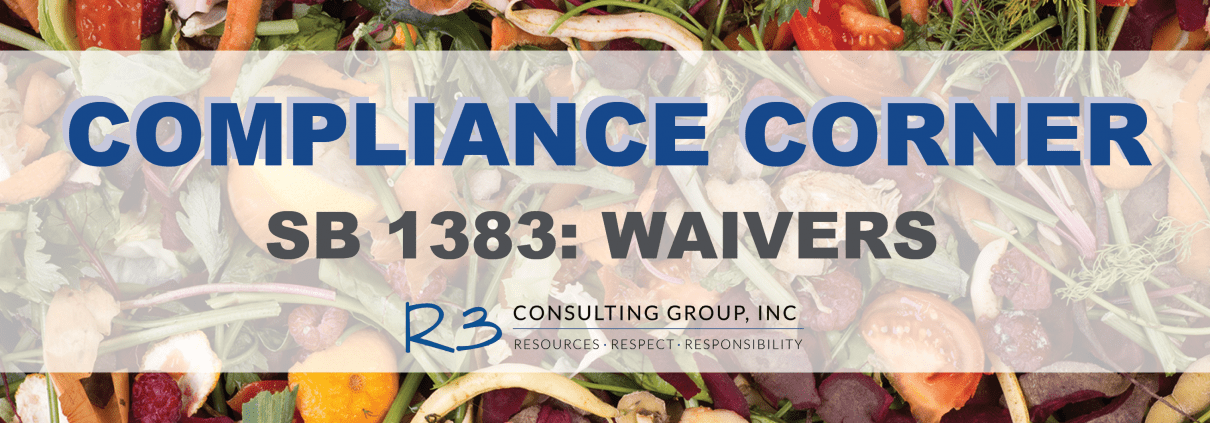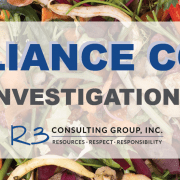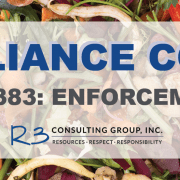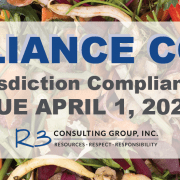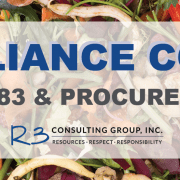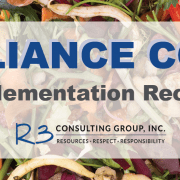Compliance Corner – May 2022
By now, you have adopted your SB 1383 mandatory organics reduction ordinance and are probably knee-deep in identifying Tier 1 and 2 commercial edible food generators, updating your website, notifying generators of their responsibilities and making sure that covered generators have a collection program for organics.
But what about those businesses that don’t generate enough paper, food or plant debris to need collection?
What about nail salons, hair salons, auto body shops, etc.?
Some small businesses, like these, generate very little in the way of organic materials.
Do they still have to have organics collection?
They (and others) may be eligible for a waiver if they meet the criteria noted below!
May 2022 – Waivers
For this month, we’re focusing on SB 1383 Waivers, Section 18984.11: Waivers Granted by a Jurisdiction.
While waivers are not required to be provided, many jurisdictions will use them to provide flexibility for businesses who generate very little to no organics.
De Minimis Waivers
A jurisdiction may waive a business’ obligation to comply with some or all SB 1383 business requirements, if the business provides documentation, or the jurisdiction has evidence, demonstrating that organic waste comprises a de minimis amount as follows.
- For businesses with total solid waste collection service of two cubic yards or more per week, organic waste comprises less than 20 gallons per week per applicable container of the business’ total waste,
- For businesses with total solid waste collection service of less than two cubic yards per week, organic waste comprises less than 10 gallons per week per applicable container of the business’ total waste.
Jurisdictions may be able to prioritize certain businesses to start the waiver process with, by simply looking at the business name (are they a non-food related service business) and their solid waste service levels.
Physical Space Waivers
A jurisdiction may also waive a commercial business’ or property owner’s obligation to comply with organic waste collection service requirements if the business or property owner provides documentation, or the jurisdiction has evidence, demonstrating that the premises lack adequate space for organic waste containers. R3 recommends staff or a hauler verify physical space waivers through an on-site visit before granting the waiver.
Some jurisdictions are providing a sample waiver form on their website that businesses can fill out requesting a waiver, and some are having their haulers, staff or a third party, conduct site visits to determine who is eligible for a waiver. Jurisdictions may be able to prioritize certain businesses to communicate with about a potential waiver, just by looking at the business name and their service levels.
While haulers or other third-party entities may suggest businesses for waivers, the jurisdiction or other public entity needs to issue the waiver.
Recordkeeping for Waivers
Jurisdictions are required to keep waiver information in their SB 1383 implementation record. They are required to describe their process for issuing waivers and the frequency of inspections to verify the validity of such. They are also required to keep a copy of all waivers issued, including the location, date issued and name of generators.
Helpful Links:
More information can be found on CalRecycle’s SB 1383 Q&A website, click on “waivers” at the top of the page.

